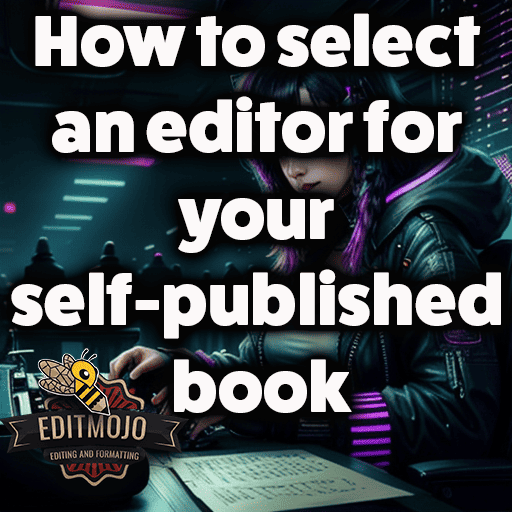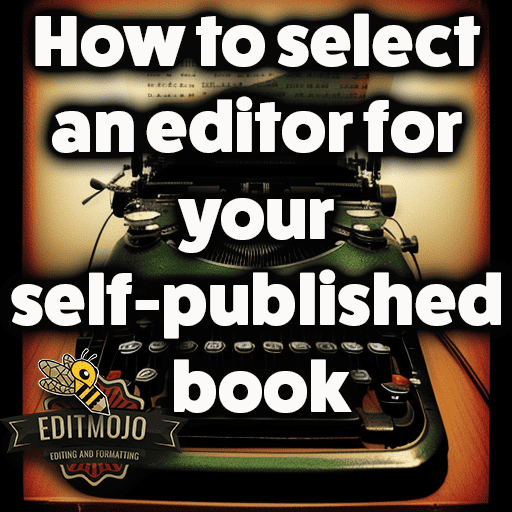How to select an editor for your self-published book
How to select an editor for your self-published book. Choosing an editor for your self-published book is a critical step in your journey as an author. It’s not just about finding someone who can spot a misplaced comma or a misspelled word. It’s about finding a partner who can help you bring your vision to life, someone who understands your genre, your style, and your voice. It’s about finding a professional who can provide constructive feedback, help you improve your manuscript, and ultimately, help you create a book that you can be proud of.
Key Takeaways
| Section | Key Takeaway |
|---|---|
| Understanding the Importance of an Editor | An editor is a crucial partner in the self-publishing process, helping to refine and polish your manuscript. |
| Different Types of Editors and Their Strengths | Different editors have different strengths, such as dialogue, structure, or mood. |
| Understanding Your Manuscript’s State | Before looking for an editor, you need to understand the current state of your manuscript. |
| The Process of Finding an Editor | Finding an editor involves searching for candidates, evaluating potential editors, and shortlisting candidates. |
| The Importance of Genre Specialization | An editor who specializes in your genre can provide more valuable feedback and guidance. |
| The Role of Sample Edits | Sample edits allow you to see how an editor works and what they can do with your book. |
| Key Considerations When Choosing an Editor | Considerations include the book itself, business considerations, and the editor’s bedside manner. |
| Budget Considerations | You need to know your budget and what you can afford when choosing an editor. |
Choosing an editor for your self-published book is more than just a business decision. It’s a partnership. Your editor is your ally in the battle to create the best possible version of your book. But how do you find the right one?
First, you need to understand the importance of an editor. An editor is not just a proofreader. They are a critical eye, a constructive voice, and a guiding hand throughout your self-publishing journey. They can spot inconsistencies, suggest improvements, and help you polish your manuscript until it shines.
Different editors have different strengths. Some may excel at dialogue, others at structure, and others at creating mood. Understanding these strengths can help you find the right editor for your book.
Before you start looking for an editor, you need to understand your manuscript’s state. Is it a rough draft, or is it a polished manuscript that just needs a final read-through? Knowing this can help you determine what kind of editing help you need.

The process of finding an editor involves several steps. You need to search for candidates, evaluate potential editors, and shortlist your top choices. Look for editors who specialize in your genre, as they will have a better understanding of your audience and the conventions of your genre.
One of the most important steps in choosing an editor is reviewing sample edits. This gives you a chance to see how the editor works and what they can do with your book.
When choosing an editor, there are several key considerations. You need to consider the book itself, business considerations, and the editor’s bedside manner. You want an editor who understands your vision for the book, who has a professional approach to their work, and who you feel comfortable working with.
Finally, you need to consider your budget. Editing can be a significant investment, but it’s an investment in the quality of your book. Know what you can afford, and find an editor who can work within your budget.
Remember, choosing an editor is a crucial step in your self-publishing journey. Take the time to find the right one, and you’ll be well on your way to creating a book that you can be proud of.
Top Five Questions and Answers
Q1: Why is it important to choose an editor who specializes in your genre?
A1: An editor who specializes in your genre will have a better understanding of the conventions and expectations of that genre. They will be able to provide more valuable feedback and guidance, helping you to create a book that will resonate with your target audience.
Q2: What are some key considerations when choosing an editor?
A2: Some key considerations include the book itself, business considerations, and the editor’s bedside manner. You want an editor who understands your vision for the book, who has a professional approach to their work, and who you feel comfortable working with.
Q3: What is the role of sample edits in the selection process?
A3: Sample edits allow you to see how an editor works and what they can do with your book. They give you a chance to evaluate the editor’s skills and approach before you commit to working with them.
Q4: How can understanding your manuscript’s state help you in choosing an editor?
A4: Understanding your manuscript’s state can help you determine what kind of editing help you need. For example, a rough draft might need developmental editing, while a polished manuscript might only need proofreading.
Q5: Why is it important to consider your budget when choosing an editor?
A5: Editing can be a significant investment, so it’s important to know what you can afford. You want to find an editor who can provide the services you need within your budget. Remember, though, that editing is an investment in the quality of your book.

The Importance of Communication in the Editor-Author Relationship
Communication is key in any relationship, and the editor-author relationship is no exception. You need an editor who can clearly articulate their thoughts and suggestions, and who is open to discussion and collaboration. Remember, this is your book. The editor is there to help you make it the best it can be, not to rewrite it in their own image.
Understanding the Different Types of Editing (How to select an editor for your self-published book)
There are several different types of editing, including developmental editing, line editing, and proofreading. Understanding the differences between these can help you determine what kind of editing help you need.
Developmental editing involves looking at the big picture of your book. A developmental editor will help you with things like plot structure, character development, and pacing.
Line editing, on the other hand, is more focused on the details. A line editor will go through your manuscript line by line, looking for issues with things like sentence structure, word choice, and consistency.
Finally, proofreading is the final polish on your manuscript. A proofreader will look for typos, misspelled words, and other small errors.
The Role of Test-Drives in the Selection Process
Just like you wouldn’t buy a car without taking it for a test drive, you shouldn’t hire an editor without seeing them in action. Many editors will provide a free sample edit of a few pages of your book. This gives you a chance to see how they work, what kind of feedback they provide, and how they communicate their suggestions.

Choosing an editor for your self-published book is a big decision, but it’s not one you have to make alone. By understanding the importance of an editor, knowing what to look for, and taking the time to evaluate potential editors, you can find the perfect partner for your self-publishing journey. Remember, the right editor will not only help you improve your book, they will help you become a better writer in the process.
Top Questions and Answers (Continued) (How to select an editor for your self-published book)
Q6: What are the different types of editing?
A6: The main types of editing are developmental editing, line editing, and proofreading. Developmental editing focuses on the big picture elements of your book, like plot and character development. Line editing is a detailed review of your manuscript, focusing on sentence structure and word choice. Proofreading is the final polish, looking for typos and other small errors.
Q7: What is the importance of communication in the editor-author relationship?
A7: Communication is key in the editor-author relationship. The editor needs to be able to clearly articulate their suggestions and be open to discussion. The author needs to feel comfortable discussing their vision for the book and any concerns they might have.
Q8: Why should I ask for a sample edit?
A8: A sample edit gives you a chance to see how the editor works, what kind of feedback they provide, and how they communicate their suggestions. It’s a way to test-drive the editor before you commit to working with them.
Q9: How can understanding the different types of editing help me choose an editor?
A9: Understanding the different types of editing can help you determine what kind of editing help you need. This can guide you in your search for an editor, as different editors may specialize in different types of editing.
Q10: What should I look for in an editor?
A10: Look for an editor who understands your genre, who has a professional approach to their work, and who you feel comfortable working with. You should also consider their communication style, their feedback style, and their understanding of your vision for the book.
